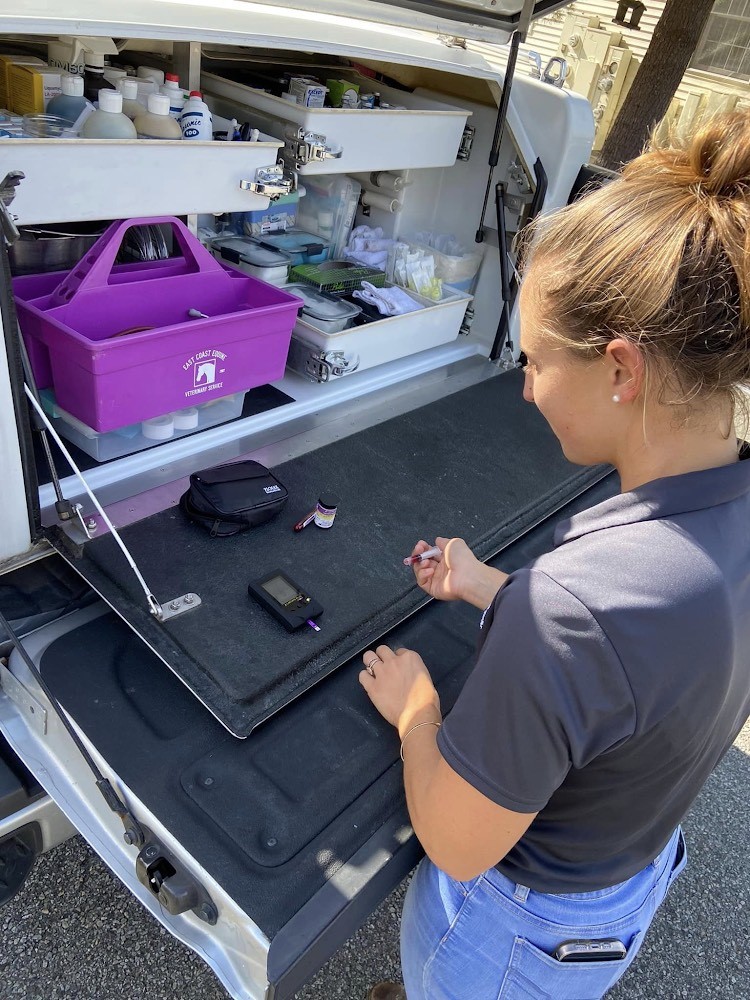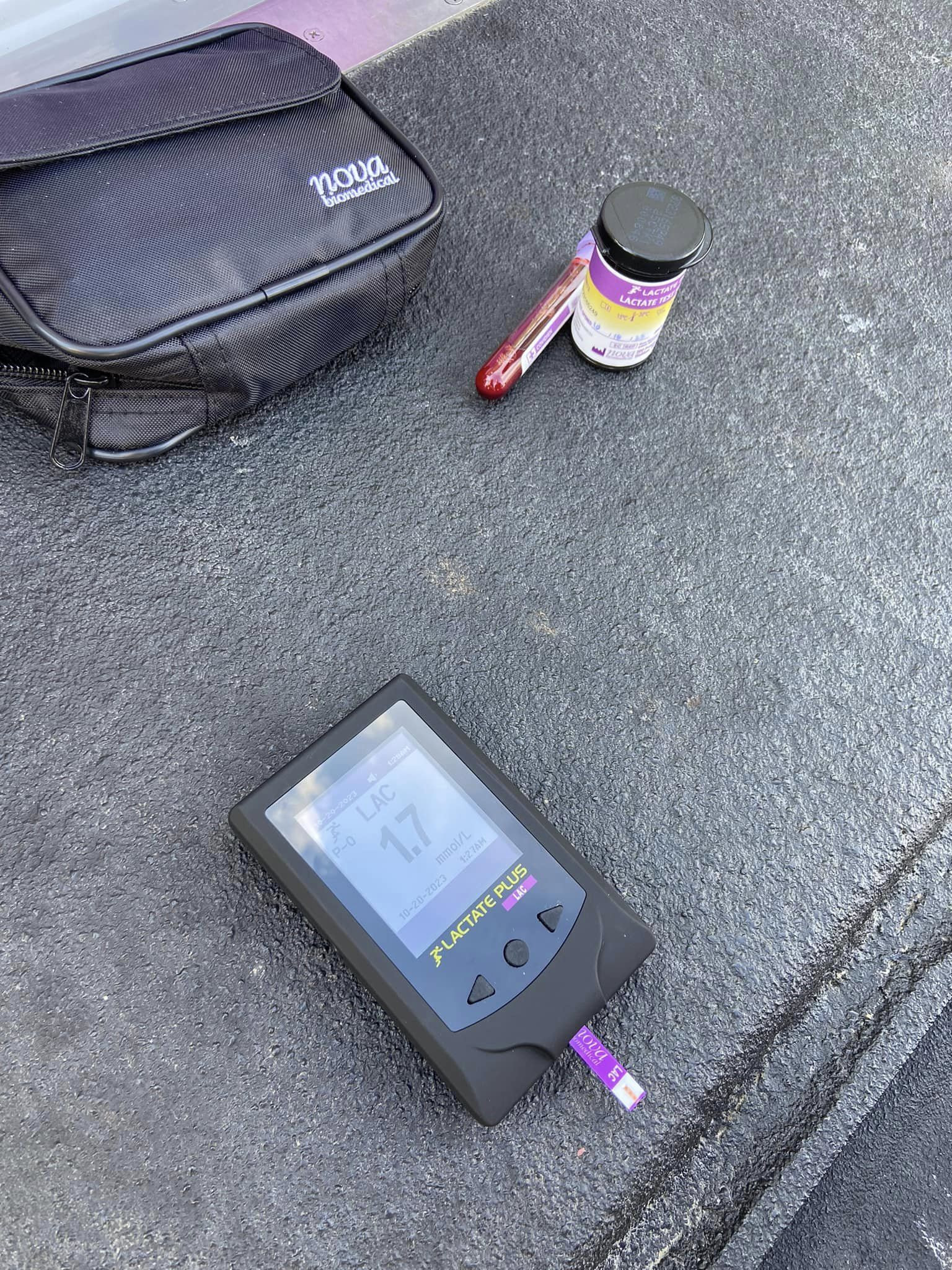Laboratory Services
In-House Lab Complete Blood Count & Chemistry With Fibrinogen (CBC/Chem)
ECEVS has the ability to run CBC/Chem in-house. This allows ECEVS rapid turnaround for blood results, diagnosis and possible treatment. Blood testing is commonly used to help diagnose illness or injury in horses. It can also help determine the state of your horse’s health during regular physical exam visits. Although a CBC or a chemistry profile can be performed separately, these tests are frequently done at the same time; when the results are interpreted together, they provide a good overview of many of the body’s functions.
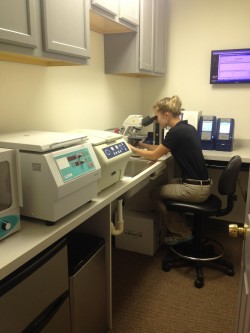
Your veterinarian will combine test result information with physical exam findings, medical history, and other information to assess your horse’s health status and determine if additional testing should be recommended. CBC/Chem test results tell a veterinarian what is going at on in the horse’s bloodstream at the time the blood was drawn. What is in a CBC/Chem you might ask or what is my veterinarian looking for? Red Blood cells, white blood cells, serum, and platelets counts are the 5 blood components that a veterinarian will look at. The numbers, shapes, and sizes of blood components can tell a veterinarian if a horse is possibly anemic, losing blood, is dehydrated or fighting an infection. The Chemistry profile is a panel of tests that analyzes organ function (kidney, liver, etc).
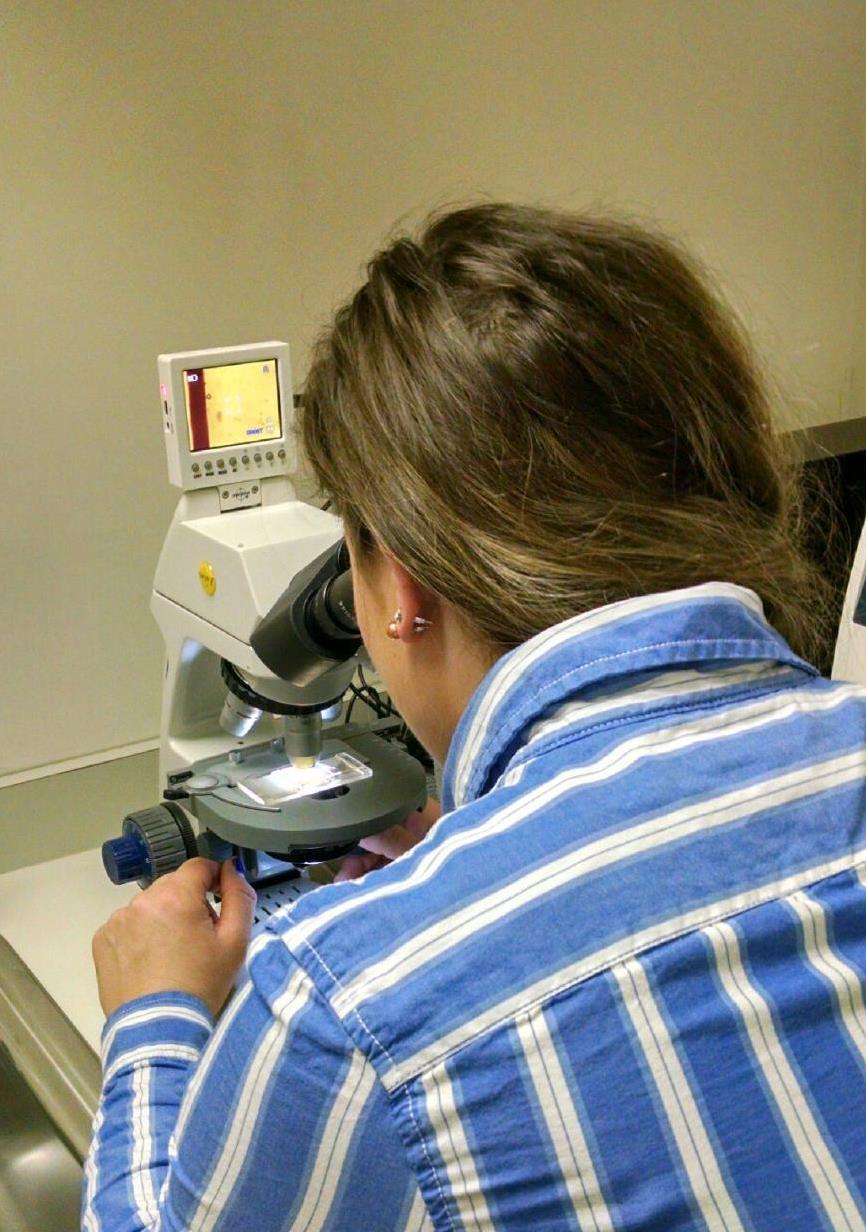
Fecal Egg Count
Due to so many years of frequent rotational deworming, a high degree of resistance to the common anthelmintics (dewormers) has developed in our worm populations; therefore, ECEVS recommends a fecal-based deworming program. The best way to know whether your horse has a high or low parasite burden is to evaluate his/her manure for parasite eggs – a test known as a Fecal Egg Count (FEC). A FEC test is performed in our office laboratory by our veterinarians and trained veterinary technicians. For the test, simply collect 2-3 fresh manure balls and place them in a plastic baggie. If you can’t get the sample to our office right away, refrigerate it overnight.
iStat
iStat is a portable handheld clinical analyzer that can provide results in 2-3 minutes. It delivers accurate blood-gas, electrolyte, chemistry, and hematology results with just a few drops of blood. With the iStat unit ECEVS can obtain results, diagnose, discuss results with clients, and begin treatment immediately at the point-of-care.
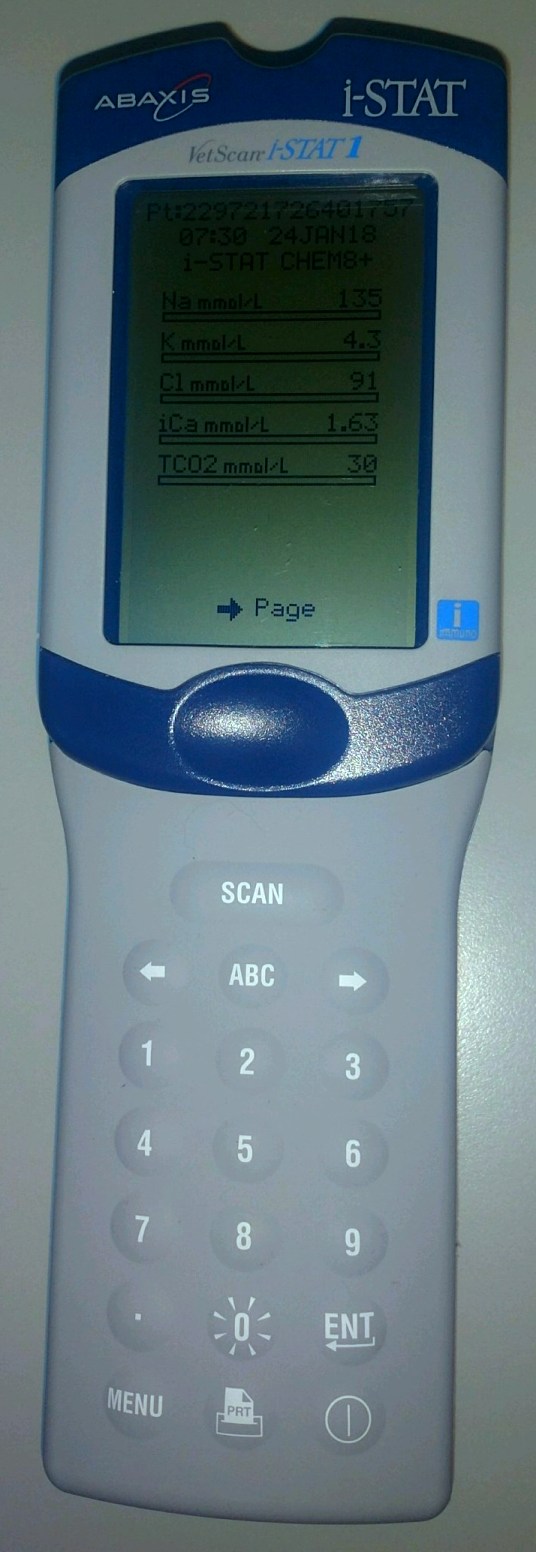


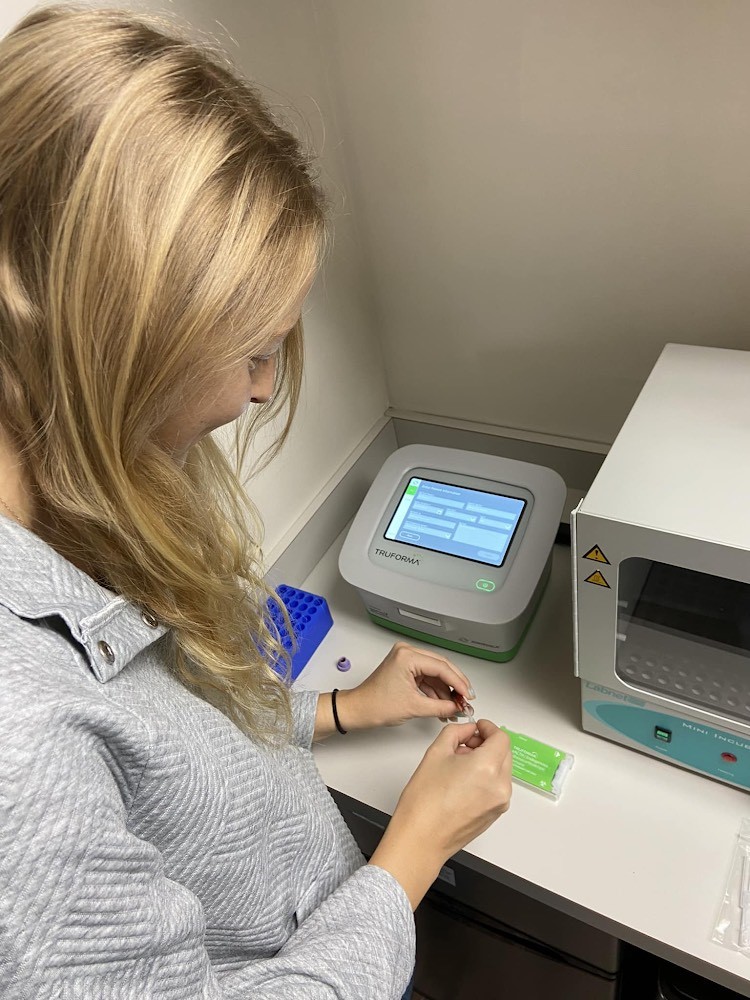
Truforma Equine ACTH
